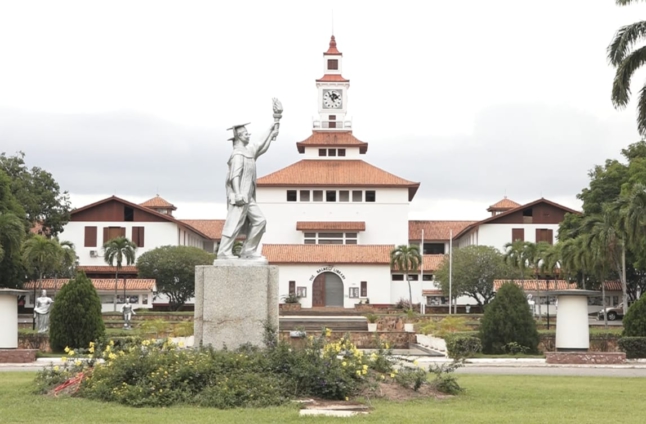
Audio By Carbonatix
A District Court in the United States of America has turned down a request to compel the University of Ghana (UG) to pay ACE American Insurance Company an amount of $165,000,000.
This is judgement debt the school was to pay the company for allegedly breaching its obligation under a construction project.
The project is a public-private partnership agreement UG entered into with CPA Ghana in 2015.
The University was required to lease land and grant a concession to CPA to finance, construct, operate and maintain various new infrastructure projects on its campus.
In 2016, CPA alleged UG had not procured the necessary letters of credit as required under the agreement. It, therefore, exercised its right to terminate the agreement and further exercised the option of having an independent expert determine the Termination Value of the contract.
The Expert in 2018 pegged the value at $165million. UG had prior to the announcement of this value, indicated its preference for an arbitration process to resolve the dispute.
CPA however opted not to permit this arbitration insisting UG had not met the necessary requirements. CPA in 2019 tasked the ACE American Insurance Company to recover the $165million from UG.
The insurance company then initiated this action against the University at the US District Court, Southern District of New York. UG however filed processes urging the Court to dismiss the case. It contended that the court lacked jurisdiction to hear the matter. The Court presided over by Naomi Reice Buchwald on August 15, 2022 upheld UG’s arguments and dismissed the case.
The Court noted that the construction agreement had stated in clear terms that “the place of arbitration shall be in London, UK”.
This, it explained, meant any such arbitration in the US was only permissible if it was impossible to conduct the arbitration in the UK.
It also upheld UG’s view that such an action cannot be initiated against it because the school is not "alter ego of the Republic of Ghana".
This was UG’s response to the Insurance company insisting it can take action against the University because the Foreign Sovereign Immunities Act permits it to do so.
It was for these reasons that the court dismissed the case against UG.
Latest Stories
-
Eduwatch praises education financing gains but warns delays, teacher gaps could derail reforms
11 minutes -
Kusaal Wikimedians take local language online in 14-day digital campaign
58 minutes -
Stop interfering in each other’s roles – Bole-Bamboi MP appeals to traditional rulers for peace
1 hour -
Livestream: President Mahama addresses nation in New Year message
2 hours -
Industrial and Commercial Workers’ Union call for strong work ethics, economic participation in 2026 new year message
4 hours -
Crossover Joy: Churches in Ghana welcome 2026 with fire and faith
4 hours -
Traffic chaos on Accra–Kumasi Highway leaves hundreds stranded as diversions gridlock
4 hours -
Luv FM Family Party in the Park: Hundreds of families flock to Luv FM family party as more join the queue in excitement
4 hours -
Failure to resolve galamsey menace could send gov’t to opposition – Dr Asah-Asante warns
4 hours -
Leadership Lunch & Learn December edition empowers women leaders with practical insights
4 hours -
12 of the best TV shows to watch this January
5 hours -
All-inclusive Luv FM Family Party underway with colour, music, and laughter as families troop in to Rattray Park
5 hours -
Jospong Group CEO, wife support over 5,000 Ghanaians with food, cash on New Year’s Day
6 hours -
Life begins at 40: A reflection on experience and leadership
7 hours -
Maresca leaves Chelsea after turbulent end to 2025
7 hours

